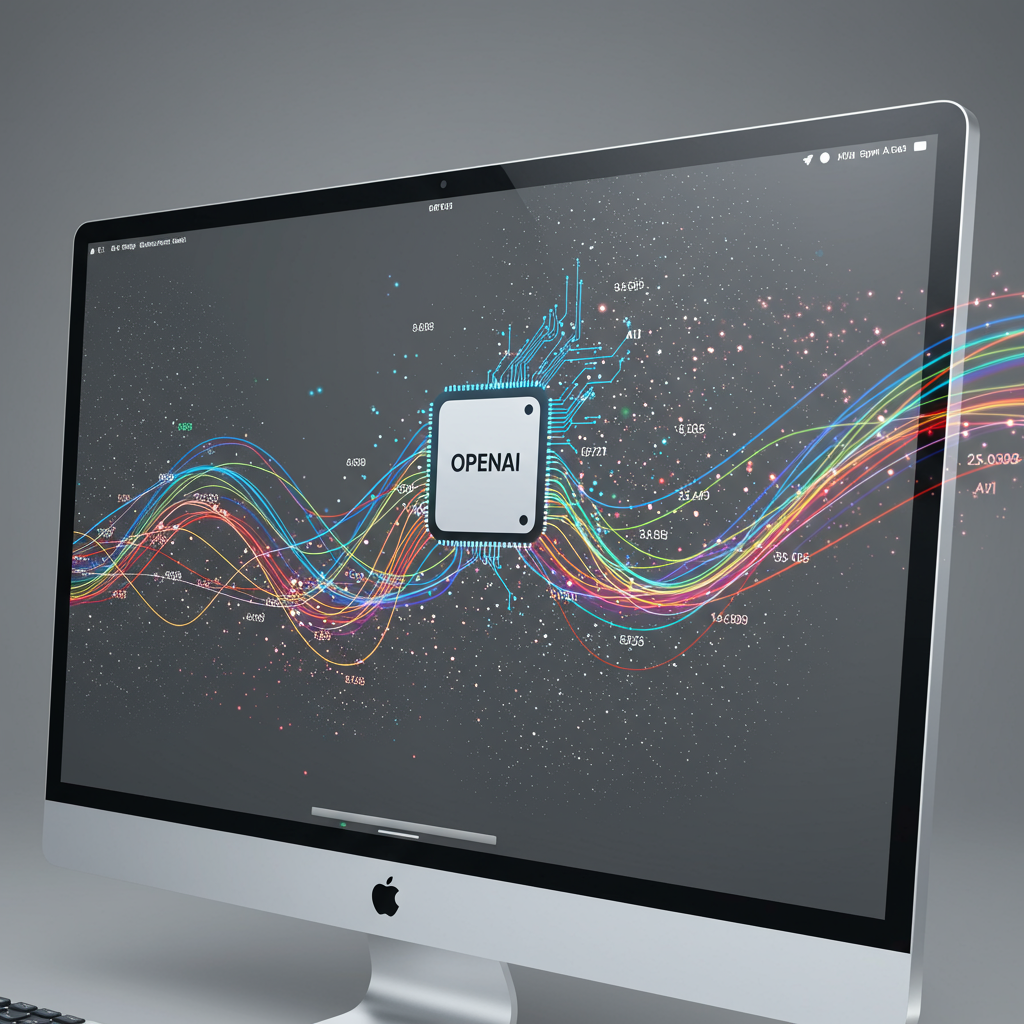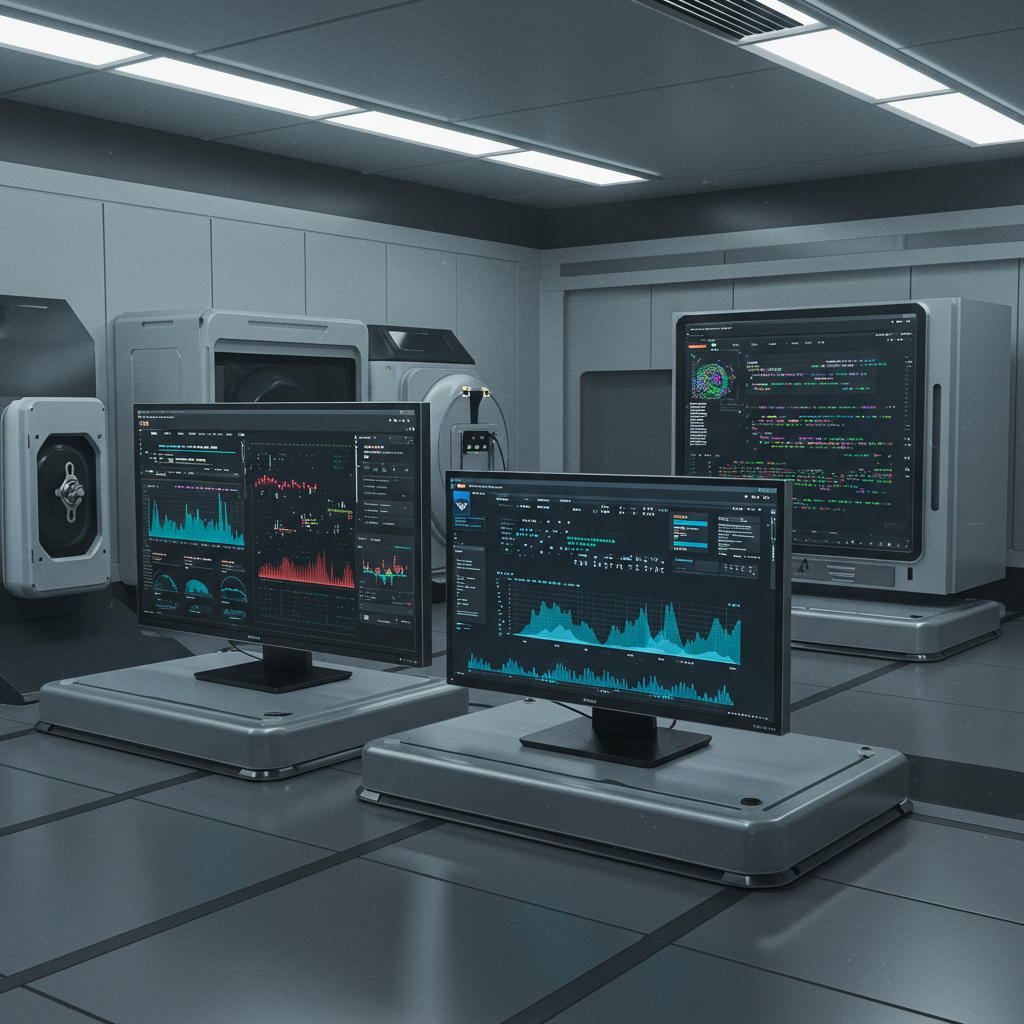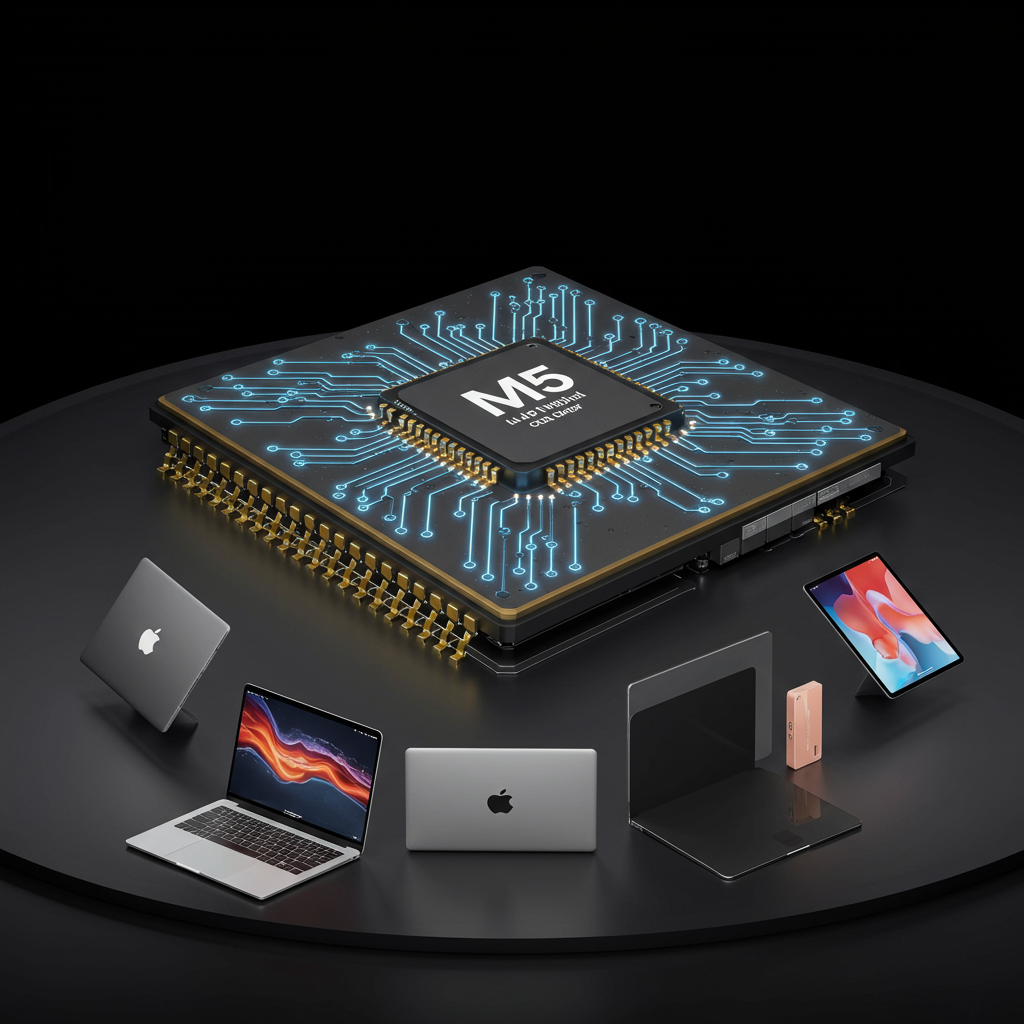The future of how we interact with our computers is rapidly evolving, and a recent strategic move by OpenAI underscores this shift. OpenAI has officially acquired Software Applications Incorporated (SAI), the innovative startup behind the unreleased Sky AI application. This acquisition, confirmed in October 2025, signals OpenAI’s clear intent to deeply embed its artificial intelligence capabilities directly into operating systems, starting with macOS. The move marks a significant expansion beyond traditional chatbot interfaces, aiming to bring genuinely context-aware, agentic AI directly to the user’s desktop.
Unlocking AI: A New Era for Desktop Interaction
OpenAI’s acquisition of SAI and its Sky AI assistant is more than just a corporate transaction. It represents a foundational step towards integrating advanced AI directly into the fabric of our digital lives. Sky was designed as a sophisticated, context-aware AI interface layer that operates directly on macOS. Unlike typical applications, Sky aimed to understand the user’s screen environment, interpret natural language commands, and execute complex workflows across multiple applications without prior setup. This capability allows the AI to move beyond simply answering questions or generating text. Instead, it can perform actions, automate tasks, and proactively assist users in a deeply integrated manner.
This development aligns with OpenAI’s broader vision. As an OpenAI representative stated in a blog post about the acquisition, “AI progress isn’t only about advancing intelligence—it’s about unlocking it through interfaces that understand context, adapt to your intent, and work seamlessly.” The goal is to weave Sky’s deep macOS integration and product craftsmanship directly into ChatGPT, empowering users with a far more intuitive and powerful desktop AI experience.
The Team Behind the Innovation: Shortcuts to Sky
At the heart of Software Applications Incorporated is a team with a stellar track record in user-focused automation. SAI was founded by Ari Weinstein (CEO), Conrad Kramer (CTO), and Kim Beverett (Product Lead). This trio is widely recognized for their pioneering work on the Workflows app for iOS. Apple later acquired Workflows in 2017, using its technology as the blueprint for the system-wide Shortcuts feature integrated across Apple’s software platforms. After their impactful tenure at Apple, Weinstein, Kramer, and Beverett embarked on their next venture, Sky. Their expertise in creating intuitive, powerful automation tools, combined with a deep understanding of Apple’s ecosystem, makes them a highly sought-after talent acquisition in the competitive AI landscape. All members of the 12-person SAI team will join OpenAI, underscoring the value placed on their collective skills.
OpenAI’s Expanding Ambitions Beyond the Chatbot
The acquisition of Sky provides even more evidence of OpenAI’s rapidly expanding ambitions. The company is actively moving beyond its initial role as a question-and-answer chatbot, evolving into a multifaceted provider of AI solutions. Earlier in 2025, OpenAI launched Atlas, a ChatGPT-driven web browser that already incorporates AI Operator features for task automation. Sky’s advanced capabilities, particularly its screen-aware AI, are expected to significantly enhance these existing functionalities, enabling more comprehensive and seamless AI assistance within the computing environment.
By integrating the SAI team’s profound knowledge of the macOS platform, OpenAI is strategically positioned. It can empower ChatGPT not just to offer suggestions, but to “agentically work directly on users’ macOS environments.” This represents a fundamental shift towards autonomous AI agents capable of direct interaction and operation within a user’s operating system. The focus on macOS also highlights a strategic trend, as many early adopters, including a large cohort of front-end web and mobile application developers, predominantly use macOS as their primary platform.
The Intensifying AI Race: M&A as a Strategic Tool
This acquisition unfolds within a rapidly consolidating and intensely competitive AI industry. Major tech giants like Google and Apple are aggressively advancing their own AI ecosystems, exemplified by initiatives like Apple Intelligence. Microsoft, a key partner to OpenAI, is also heavily invested in AI, showcasing numerous success stories where its AI solutions drive significant business transformation and productivity gains across various industries. The strategic importance of AI is driving robust merger and acquisition (M&A) activity in the enterprise technology sector.
Analysts point to AI as a pivotal driving force for M&A deals, particularly those focused on “scope”—expanding product ranges rather than just market share. These deals aim to secure essential talent and innovative capabilities, leading to revenue synergies and the cross-selling of integrated products. OpenAI’s acquisition of SAI fits this trend perfectly, securing a specialized team and innovative technology that would be difficult to build from scratch. This talent acquisition is considered critical in a market where skilled AI engineers are a scarce commodity.
What This Means for the Future of Desktop AI
The integration of Sky’s screen-aware AI technology is set to accelerate OpenAI’s efforts to develop more intuitive AI tools. These tools will be capable of understanding and manipulating on-screen elements based on natural language input. This represents a significant leap from traditional chatbots, moving towards a truly interactive and responsive computing experience. While the immediate emphasis appears to be on Apple’s ecosystem due to the founders’ backgrounds, the technology could potentially pave the way for cross-platform tools, especially given OpenAI’s strong partnership with Microsoft. Through Microsoft’s influence, the technology could extend to Windows or other platforms, fundamentally altering how users interact with their computers.
The vision is for AI to become an integral, seamless part of daily computing, reducing reliance on web-based interfaces and potentially disrupting traditional software paradigms. This partnership combines top-tier talent in user automation with leading artificial intelligence research and development, setting the stage for a future where AI enhances nearly every digital interaction.
Frequently Asked Questions
What is Sky AI and what does the OpenAI acquisition mean for its future?
Sky AI was an unreleased, context-aware AI assistant designed for macOS by Software Applications Incorporated (SAI). It leveraged Apple APIs to understand on-screen content and execute natural language commands across multiple applications. OpenAI’s acquisition, confirmed in October 2025, means Sky’s technology will be integrated directly into ChatGPT. This aims to create a more intuitive desktop AI experience, transforming ChatGPT from a chat interface into a powerful agent capable of acting directly within a user’s operating system environment. While specific development plans for Sky under OpenAI are still emerging, the intent is to enhance ChatGPT’s ability to perform tasks and automate workflows on macOS.
Who are the founders of Software Applications Incorporated (SAI) and why is their expertise valuable to OpenAI?
SAI was founded by Ari Weinstein (CEO), Conrad Kramer (CTO), and Kim Beverett (Product Lead). This team is renowned for previously developing the Workflow app for iOS, which Apple later acquired and used as the foundation for its system-wide Shortcuts feature. Their unique and highly sought-after expertise lies in creating user-friendly automation tools and understanding deep operating system integration, particularly within Apple’s ecosystem. OpenAI values this specific talent for its strategic goal of embedding AI more profoundly into desktop operating systems and enabling “agentic AI” that can directly control user environments.
How might OpenAI’s acquisition of Sky influence the future of AI on macOS and beyond?
OpenAI’s acquisition of Sky is poised to significantly influence the future of AI by shifting towards a model where AI agents actively operate within the OS, rather than just providing information. For macOS users, this could mean highly personalized, context-aware AI assistance that automates tasks across applications with spoken commands and no setup. Beyond macOS, the core technology of screen-aware AI and natural language-driven automation could pave the way for cross-platform integrations. Given OpenAI’s partnership with Microsoft, there is potential for this advanced desktop AI capability to extend to Windows or other operating systems, fundamentally redefining how users interact with their computers across all major platforms.
Conclusion
OpenAI’s acquisition of Software Applications Incorporated and its Sky AI application represents a decisive step toward a future where artificial intelligence is not merely a tool, but an integral, seamless component of our operating systems. By bringing the exceptional talent behind Apple’s Shortcuts and the innovative Sky platform into its fold, OpenAI is poised to dramatically enhance ChatGPT’s capabilities. This strategic move aims to transform AI interaction from conversational queries to active, context-aware automation directly on the desktop, potentially reshaping how we work, create, and interact with our digital devices across macOS and, eventually, other platforms. The race for deeply integrated AI is accelerating, and OpenAI is making bold moves to lead the charge.




